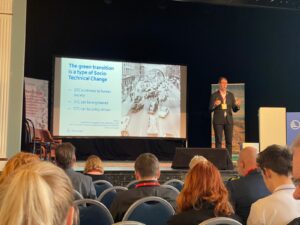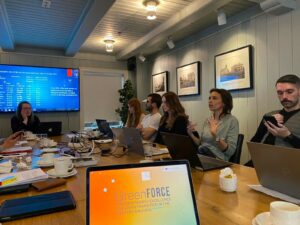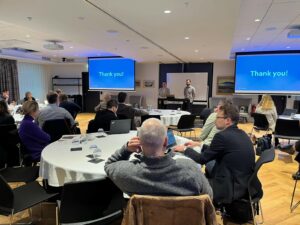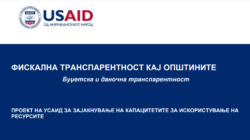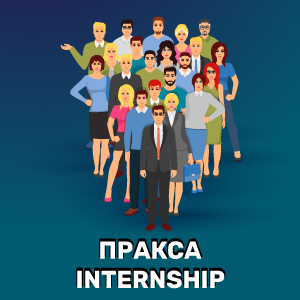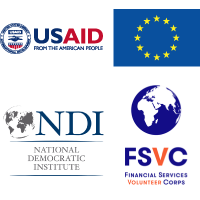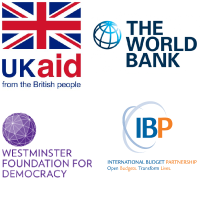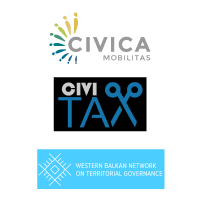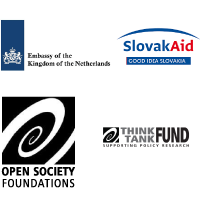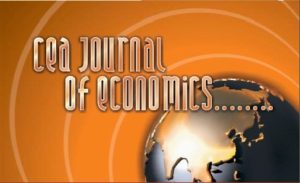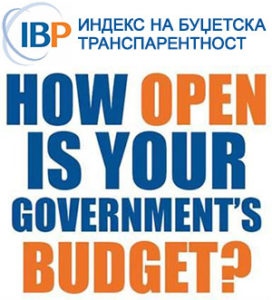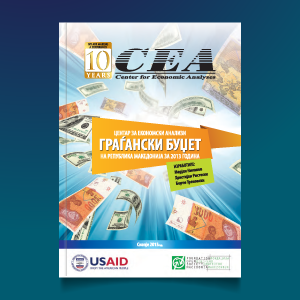What would a macro-regional governance partnership in the Western Balkans look like? How would it work in practice? With these questions in mind, GreenFORCE partners came to Iceland in mid-October to learn firsthand about the Nordic model of regional cooperation.
The visit was organised by Nordregio, an institutional partner in this project and a research centre established by the Nordic Council of Ministers, the official body for inter-governmental co-operation in the Nordic Region. As such, Nordregio plays a key role in the implementation of the Nordic Cooperation Programme for Regional Development and Planning and leads three Nordic Thematic Groups who came together from across the Nordics for meetings in Iceland.
“In a European and broader global context, Nordic cooperation stands out for pioneering collaboration on multiple fronts,” explained Alberto Giacometti, Senior Research Advisor at Nordregio. “This includes establishing freedom of movement, a common market, and a formal structure for co-operation on various issues such as cultural integration, improving welfare, and fostering regional development. The visit to Iceland is a unique opportunity for our Western Balkan partners to be active participants and get hands-on insight into how this collaboration works.”
The events in Iceland encompassed several key components, including Nordregio Forum, an annual conference that serves as a platform for professionals and policymakers working with regional, rural, and urban development in Nordic countries.
“It was stimulating to testify to the degree of cooperation among professionals and policymakers of the Nordic countries,” said Anila Bejko, Vice Director of Co-Plan. “During the forum, they were exchanging ideas, sharing new knowledge, examples, and experiences, while pushing national and regional policy agendas.”
Beyond the conference, participants engaged in parallel meetings of the three Nordic Thematic Groups, each focusing on distinct areas: (i) Green and Inclusive Rural Development; (ii) Green, Innovative and Resilient Regions, (iii) Green and Inclusive Urban Development.
“The collaboration created through the work in three thematic groups is extremely significant and covers all the current issues of today’s development,” said Velimir Secerov, Dean of the Faculty of Geography at the University of Belgrade. GreenFORCE participants noted their appreciation for the collaborative and relaxed atmosphere of the meeting, and that the evidence-based research provided by Nordregio is deemed valuable and used by policymakers and practitioners across the region.
Luckily the visit didn’t only include conference venues but also study visits to a geothermal power plant, greenfield and brownfield city developments, and a sustainable tourism company. The visits seem to have made a true impression with Marija Jeftić, Associate Professor at the Faculty of Geography at the University of Belgrade, noting, “I saw on the spot what it really means to use and utilise renewable energy sources. Where nothing is thrown away or lost in the processing phases of the technological process itself; where the protection and preservation of natural resources is recognised as a vision of the state and society as a whole. It is fascinating how the unique natural potentials that Iceland has are actually used in a sustainable way.”
So, what of all the participants learned in Iceland can be transferred to the Western Balkan region? The list was long, but a key takeaway was that although the context differs from the Nordic region, many challenges are the same, such as declining population in rural areas, accessibility, and attractiveness. Several participants also highlighted the informal environment for dialogue amongst civil servants on more practical and technical issues as a core lesson to be borrowed.
“I have seen that collaboration on a lower-level tier (regional/local) across countries can result in valuable knowledge sharing and more valuable insights”, said Vesna Garvanlieva, Senior Economist at the Centre for Economic Analyses. She went on to note that “even though on a national level the countries can be very different, on a regional or local level there are more opportunities for comparability and collaboration.”
Original post on GreenFORCE website 